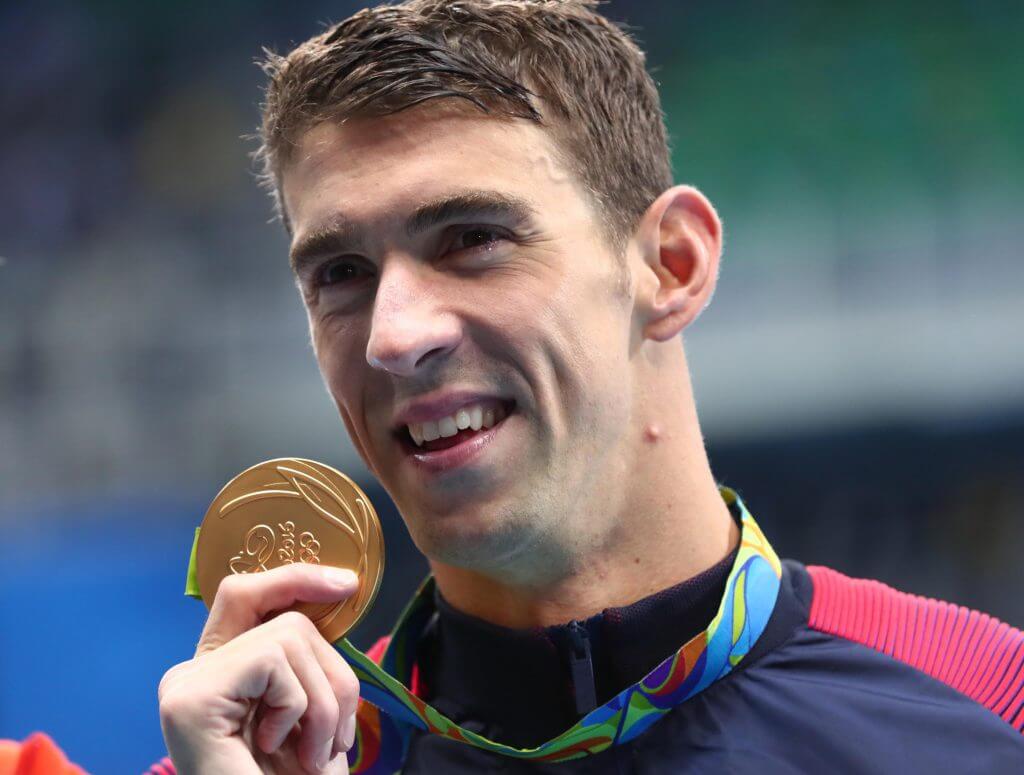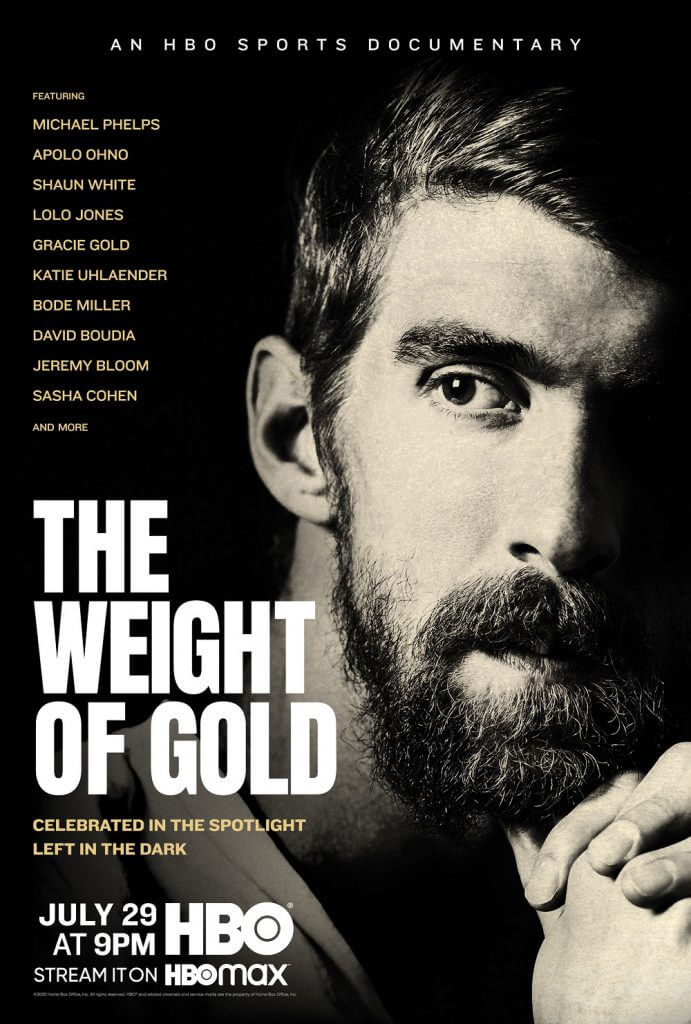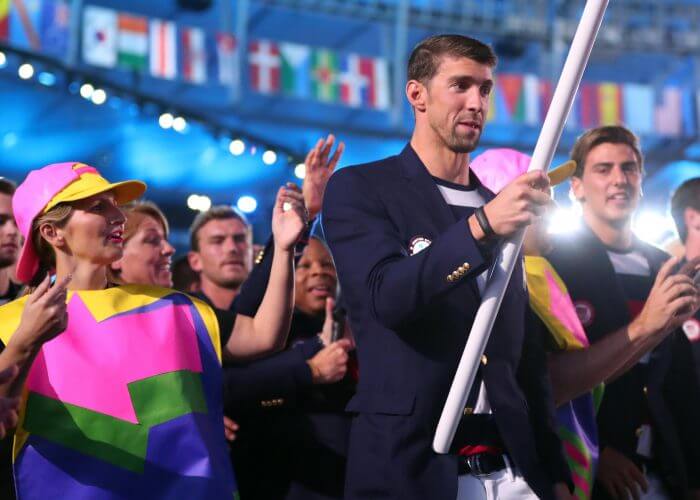Review: The Weight of Gold Gives Unfiltered Window Into Behind the Scenes Struggles of Olympic Athletes; A Must Watch

HBO’s new documentary, The Weight of Gold will debut on Wednesday night, during what should have been the week of the 2020 Olympic Games in Tokyo had the coronavirus pandemic not affected the entire world. The virus has caused many Olympic athletes out of their normal training regimens and has forced them to be faced with a difficult task: spend another year of chasing Olympic dreams when you already waited four long years.

The Weight of Gold promotional poster. Photo Courtesy: HBO Films
It was fitting that in the documentary about the struggles Olympic athletes face in the lead-up and the aftermath of an Olympics, the first shots showed the empty venues of the Tokyo Olympics where dreams would be made, hearts would be crushed, and moments would be immortalized. Millions of people around the world would be tuning in to follow the best athletes from their countries as they strive to reach the podium they have so longingly worked for their entire lives.
The Weight of Gold, directed by Brett Rapkin, focuses on some of the great US athletes of the last two decades – among them swimmer Michael Phelps, who served as narrator and executive producer for the project, diver David Boudia, speed skater Apolo Ohno, hurdler Lolo Jones, and snowboarder Shaun White. When thinking of Olympic athletes from the last 20 years, at least one of those names pops up as commercial headliners from the two-week long Games. But this documentary is not about the medals they won in the field, rather it is about the struggles they faced after the Games were over – that four year long wait between Olympics when they are expected to work just as hard to do it all over again, but also being unable to motivate themselves while having the exterior pressures to perform.

David Boudia (right) with his 10m bronze in Rio. Photo Courtesy: Andrew P. Scott-USA TODAY Sports
The documentary is a must watch for any athletes striving to make their first Olympic team, and any athletes who have already reached the pinnacle of their sports. What happens after the Olympics are over? How do you deal with the impending Olympic blues? How do you respond when a younger athlete takes your place and you are all of a sudden forgotten?
The Weight of Gold answers these questions with: no one really knows how to respond, but that doesn’t mean you can’t ask for help.
Millions of people watch the Olympics every two years, but not many see the work that those athletes do before they step foot into the venue, and often we forget about what happens to them after the Games are over.
Phelps had notable incidents covered in the documentary. In 2004, he was arrested for driving under the influence. In 2014, a few months after he announced his comeback to the sport, he was arrested again with a DUI and it brought him, in his own words, to rock bottom.

Michael Phelps flies the USA flag at the 2016 Opening Ceremony. Photo Courtesy: Rob Schumaker, USA TODAY Sports
We know what happened next – Phelps sought treatment and emerged from 2014 as a new man. That culminated in 2016 as the greatest swimmer of all-time, with his months-old son present, emerged from his final Olympics in Rio with five gold medals and one silver.
Boudia had contemplated suicide after his first Olympics in 2008, but rebounded to win gold in 2012 to become the first American diver to stand at the top of the Olympic podium in 12 years. He is still diving and is training for the Tokyo Games as a father of three.
But other athletes were not as lucky.
The film honors some of the athletes that had committed suicide within the last ten years: Steven Holcomb, Stephen Scherer, Kelly Catlin, Jack Hatton and Jeret “Speedy” Peterson.
The athletes interviewed shared moments when they were in a moment of despair wanting to take their own life, Phelps and Boudia among them. It was difficult to watch, but the conversation sparks a dialogue needed to be had in Olympic sports: athletes need better access to mental health help.
Towards the end of the documentary, the athletes go over the difficulties they had in their careers in asking for help, and often feeling ignored by those around them because of the existing stigma around mental health issues.
“You already have so many medals? Why are you unhappy?”
This film offers to erase that stigma, and does what it set out to do: to let athletes in Olympic sports know that others are feeling what they are feeling. The ending title card gives viewers a chance to seek mental health resources via TeamUSA.org as well as the film’s own website.
The Weight of Gold is a must watch for any athletes that currently participate in Olympic sports, as well as coaches and parents, to educate themselves about the mental toll training can take on athletes. The film shows how best to help them when they need it the most, by giving first hand unfiltered accounts from people who had experienced some of their darkest days while preparing for an Olympics.
The Weight of Gold is available for viewing via a paid subscription to HBO Max.
Trailer:




Loved this documentary! True to what many went through.
Would love to watch it, but I am not subscribing to HBO max.
Would love to watch it, but I don’t have HBO max ?
Loved it!!